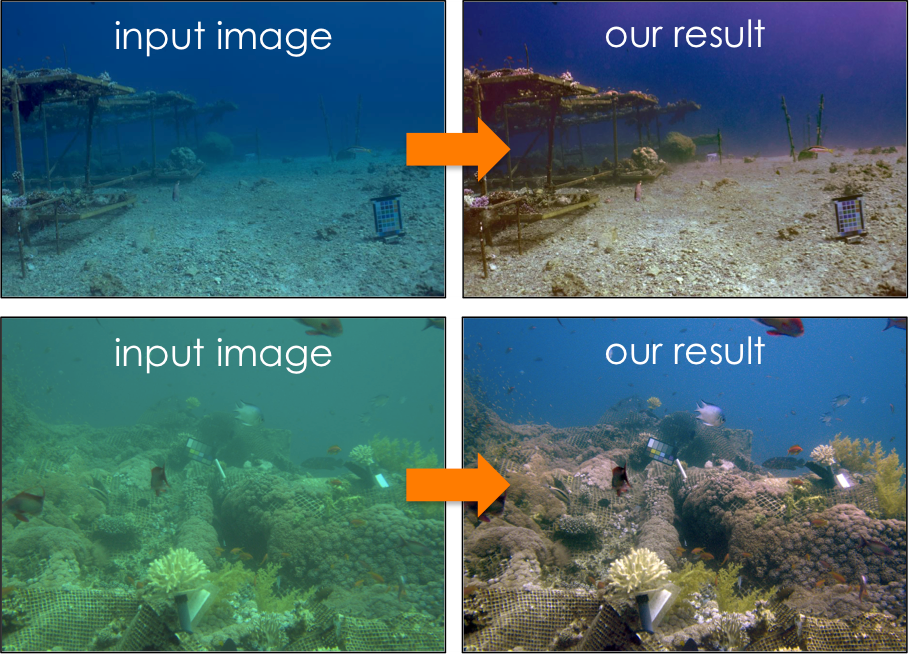Researcher : Dr. Tali Treibitz
Background
Optical imaging challenges in scattering media - from marine exploration to autonomous cars:
Visual access to sea depths that humans cannot reach is required for various marine operations – research, scientific, defense, commercial and recreational. Scientific exploration, for example, has achieved visual surveys for only 5 percent of the ocean floor and it is estimated that only 50 percent of marine species have been discovered.
Marine operations in environments that are hostile to humans rely on real-time visual information of the surroundings, which can only be attained using cameras mounted on underwater vehicles.
Likewise, the future of autonomous cars and enabling safe driving in bad weather require advanced camera technologies.
Current camera technology, however, is challenged with the problem of attenuated and scattered light in underwater, haze and fog conditions. Photographs result in a low visibility range due to low contrast, high noise and color distortion. Yet color and contrast are extremely important for visual surveys, navigation and scene understanding.
Scene restoration in such conditions is complicated, since attenuation varies with wavelength and depends both on the properties of the water body in which the image is being taken and the 3D structure of the scene. In other words, the picture acquired in scattering media (i.e., under water, in fog or haze) is affected by the distance of the object from the camera, and the optical properties of the medium. This makes it difficult to restore the colors without a-priori knowledge about the scene and the medium.
Current Techniques
Existing underwater image enhancement methods do not use the full physical image formation model. Thus, their reconstruction is limited in both quality and reconstruction range.
Reconstructing Scenes in Scattering Environments
Dr. Tali Treibitz, head of the Marine Imaging Lab at the University of Haifa’s Leon H. Charney School of Marine Sciences, is leading a research team developing technologies to enhance images acquired in underwater or fog/haze environments to ideally reconstruct the captured scene as though it was not photographed in a scattering environment.
Their methods are based on modeling the underwater image formation process and compensating for the water effects, to eventually receive a clear image. To achieve that, several water properties have to be estimated. In addition, the distances of the objects are required. In one method, these are not given as an input and therefore are estimated from the same input image using a novel image prior. As the suggested method uses a more complete physical image formation model, it is able to better reconstruct objects at further distances.
By considering a comprehensive physical model, this method is able to reconstruct scenes with a more complex 3D structure than previous methods, and to accurately correct the colors of objects that are further away. The process is fully automatic and applies novel algorithms.
Affordable and accessible:
In order to make the technology simple, without requiring extra hardware, Dr. Treibitz and her team are developing intelligent solutions that require minimal input. Standard photography equipment and a single image is all that is required to achieve complete restoration of the scene with this novel method.
Research Status and Application
Dr. Treibitz holds a number of patents protecting her methods for underwater and turbid media image reconstruction.
She and her team continue to develop and enhance the technology for potential commercial and research application.
Read more about this research:
-
Dana Berman, Tali Treibitz, Shai Avidan, Diving into Haze-Lines: Color Restoration of Underwater Images, BMVC 2017. [See project page]
[See project page]
Potential Services
High resolution visual surveys using autonomous underwater vehicles
Related Pages
Tali Treibitz, Dr. - Researcher Page


